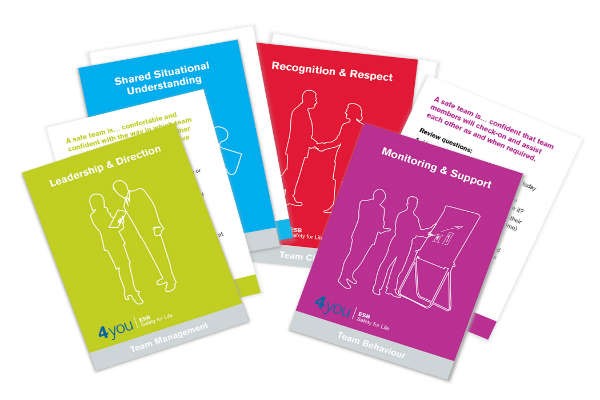When companies and employees think about safety, the first thoughts are often on management systems, training and endless procedures to prevent incidents.
While such practices are essential, the human factor in safety is often lost or indeed, forgotten.
Stress, human error, violations, levels and quality of supervision and communication are just some of the many reasons why incidents and accidents occur in the workplace.
To ensure that everyone stays safe while at work, we need more than just some off-the-shelf package and training manual. We need to influence people’s behaviour, beliefs and attitudes to safety.
Managing the Human Factor in Safety
How can we manage this human factor element when trying to instil strong safety practices and culture?
That is the challenge that many companies face today.
Recognising this issue some years ago, ESB developed the 4you programme. This is a behavioural safety initiative which includes consideration and awareness of human factors and the development of non-technical skills for safety.
The key aim of this programme is to enhance the health and safety culture of the organisation.
Turning a Vision into Practice

As more organisations become leaner, our research has shown employees can be concerned with the impact a reduced workforce can have on their own workloads and safety.
To manage this concern, the 4you programme aims to equip employees with the skills and practical knowledge to manage workplace demands and changes within the business. This includes assisting leaders with change management skills with regard to systems, process and behavioural change, and assisting employees with adapting to and living change.
In the five years since 4you was established, the programme has made a number of achievements. Such achievements include;
- Creating a new language around skills and approaches that are required to support and influence safe behaviour.
- Creating opportunities to discuss personal well being and skills to manage stress.
- Identifying and focusing on necessary leadership/non-technical skills to motivate safe behaviour.
This behavioural approach is tailored to suit the individual needs of our employees; however, some important areas of focus remain constant which include safety culture assessments, workforce and leadership development, coaching support and human factor considerations in incident investigations.
As research, best practice and experience has highlighted, leadership is critical to motivate, support, reinforce and embed safe behaviour. As such, leadership skills and behavioural science awareness is a primary focus across the 4you programme and every safety leader has access to coaching support within the business.
Communication is Key
Effective communication is also key to safety in the workplace. To keep employees informed and engaged around the 4you programme and behavioural safety, we use a Sharepoint site which enables people to access various pieces of information, templates and guides around behavioural safety topics.
The 4you team currently comprises two organisation psychologists, a behavioural analyst and a safety specialist. The team visits various work sites and locations across the organisation and meets with stakeholders, safety teams, safety related committees.
Working together, ESB believes that we can learn and support each other in layering a behavioural safety approach into our everyday interactions, conversations, activities and safety management systems.
With this mutual goal and support, our workplace safety culture will reflect that safety is our core value.
